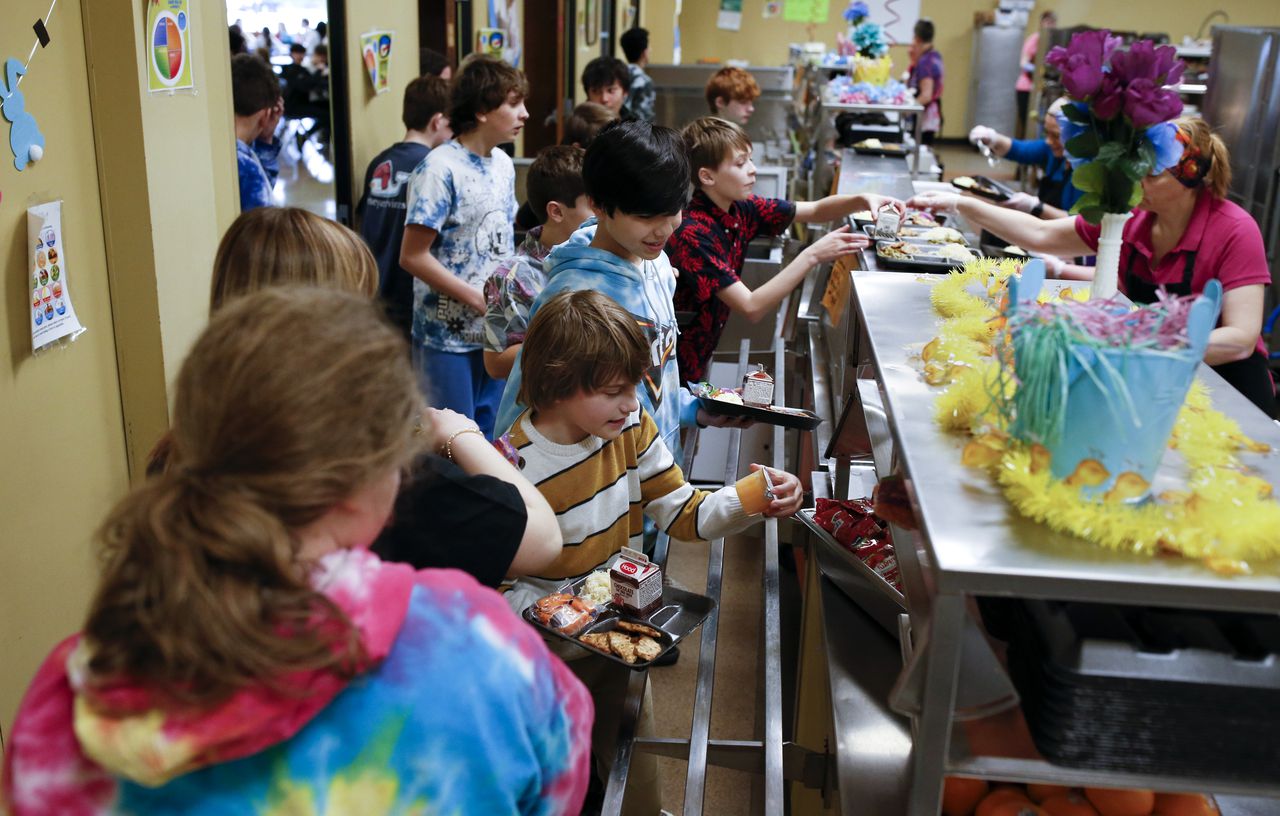Free School Meals, Yes We Can Do That

While the nation fixates on the cost of a gallon of gasoline, has anyone checked the cost of a gallon of milk lately? What about a dozen eggs or a loaf of bread?
So when the latest survey by the Greater Boston Food Bank finds that nearly a third of the state’s adult population struggle to put food on the table, the results may be shocking, but hardly surprising.
Rising inflation, the end of federal COVID-19 relief programs, and now the end of the federal universal school meals program, due to expire June 30, are creating a perfect storm for those vulnerable families.
But wait, this is Massachusetts, where the state Treasury is overflowing with unanticipated revenues and political leaders have the rare but pleasant task of deciding how those revenues can and should be used. Surely there are few causes as worthy as universal school meals.
Think of it as a “tax break” that goes directly onto the lunch trays of those most in need — a break that, according to the Feed Kids Coalition, would benefit at least 400,000 students in Massachusetts who would no longer qualify for free school meals if the universal program is allowed to expire. It would also save those families about $1,200 a year in grocery bills.
The House version of the $50 billion state budget for the fiscal year beginning July 1 provides $110 million for a year-long extension of the universal meals program. Advocates believe that would be long enough to convince lawmakers that it ought to be made a permanent part of the K-12 learning experience. The Senate did not include the provision, setting up yet another issue to be resolved by the just-appointed conference committee.
“How can we expect hungry children to learn?” Adriana Mendes-Sheldon, a family engagement liaison for the Woburn schools, said at a recent panel discussion hosted by Project Bread. “We can’t.”
One of the pluses during the otherwise bleak landscape of the last two pandemic-dominated years was federal support for universal school breakfasts and lunches that allowed school districts to deliver those meals wherever they were needed to students still learning remotely. The meals became a lifeline for families dealing with lockdowns and unemployment.
The federal extension this past year came even as students returned to the classroom. But it continued to relieve administrators of the paperwork that comes with checking eligibility or serving as debt collectors for too many unpaid Friday pizza lunches and relieved all students of the stigma that often comes with having to “sign up” for free lunches.
Project Bread, a leader in the movement for universal school meals, has usually put the number of food insecure households at 1 in 5, with Black and Latinx families disproportionately represented. The new Greater Boston Food Bank survey puts 32 percent of Massachusetts families in that category — although the figure rises to 61 percent for Latinx families and 53 percent for Black families.
Federal programs like SNAP (Supplemental Nutrition Assistance Program) help fill the gap for those who sign up — although the GBFB survey found many with food needs who are not even aware of their eligibility. Food banks help ease the food crunch too.
But making sure students have enough to eat — during the school year as well as during summer vacation programs — is an easy way to solve a piece of that growing problem.
California and Maine have already made their universal school meals programs permanent. Vermont passed a one-year extension, coupling it with an effort to use locally grown produce and products. Colorado voters will get a chance to vote on the issue in November.
It is beyond unfortunate — irresponsible even — that Congress could not put the needs of school children on their must-do list this year. But their failure creates an opportunity for Massachusetts lawmakers to do the right thing — at a time when the need is great and growing greater with every ding at the supermarket checkout counter.
A one-year extension will at least give the state time to evaluate the prospects for making universal school meals a permanent part of the curriculum.
By
